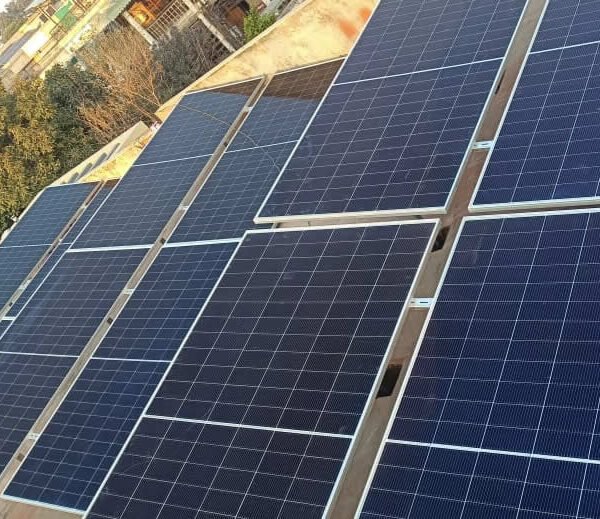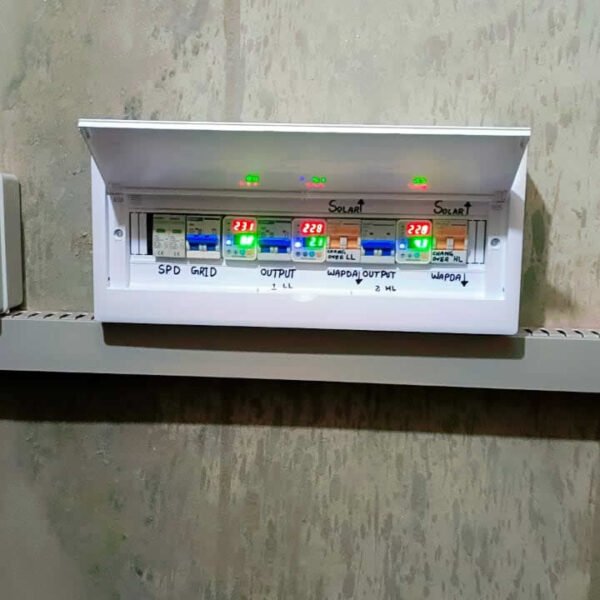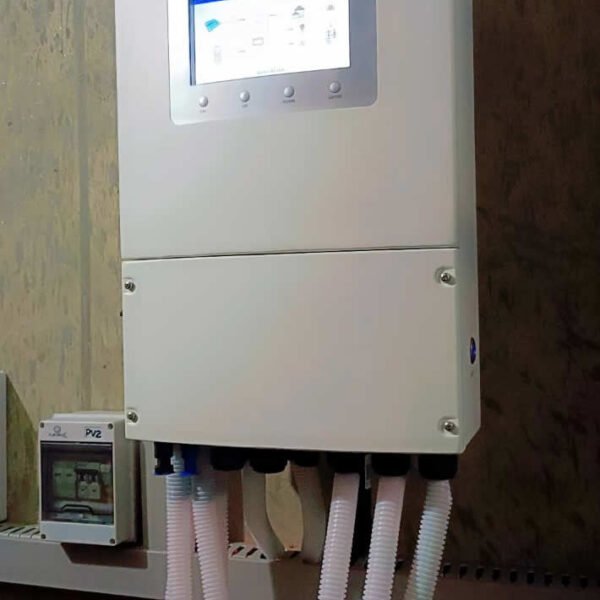Project Overview8kw (Hybrid):
This project entails the design, installation, and commissioning of an 8kW hybrid solar inverter (Solis) system. The system aims to provide a reliable and sustainable energy solution for
In this domestic project reducing reliance on the grid and ensuring energy security. The core component is an 8kW hybrid inverter, which intelligently manages the flow of energy between solar panels, battery storage, and the grid, optimizing energy consumption and providing backup power.
2. Project Goals:
- Reduce Electricity Costs: Minimize reliance on grid power by maximizing self-consumption of solar energy.
- Enhance Energy Independence: Provide a reliable backup power source during grid outages.
- Promote Sustainable Energy: Utilize clean and renewable solar energy to reduce carbon footprint.
- Optimize Energy Management: Implement intelligent energy control and monitoring for efficient usage.
- Increase Property Value: Add a valuable and sustainable asset to the property.
3. System Components:
- 8kW Hybrid Inverter:
- 8kW hybrid inverter with integrated battery management and grid connectivity.
- Key Features: High efficiency, seamless grid transition, remote monitoring, and programmable operating modes.
- Solar Panels:
- Monocrystalline, 600W panels to achieve an 8kW solar array capacity.
- Optimized panel layout for maximum sunlight capture based on site analysis.
- Battery Storage:
- Lithium-ion battery bank for storing excess solar energy.
- Provides backup power during grid outages and enables time-of-use energy optimization.
- Mounting System:
- Robust and weather-resistant mounting system suitable
- Wiring and Protection:
- High-quality DC and AC wiring, circuit breakers, and surge protection devices.
- Monitoring System:
- Online monitoring platform for real-time system performance and energy usage data.
4. Project Scope:
- Site assessment and system design.
- Procurement of all necessary equipment.
- Installation of solar panels, inverter, battery storage, and associated wiring.
- Grid connection and net metering setup (if applicable).
- System commissioning and performance testing.
- User training and handover.
- Ongoing maintenance and support (as per agreement).
5. Target Applications:
- Residential homes with high energy consumption.
- Small commercial businesses seeking to reduce operational costs.
- Off-grid or grid-tied properties requiring backup power.
- Applications where energy independence is critical.
6. Expected Outcomes:
- Significant reduction in electricity bills.
- Increased energy independence and resilience.
- Reduced carbon footprint and environmental impact.
- Improved property value.
- Reliable and efficient energy supply.
9. Key Considerations:
- Local grid connection regulations and net metering policies.
- Permitting and approvals.
- Site-specific solar irradiance and shading analysis.
- Battery storage capacity and discharge requirements.
- Warranty and support from the inverter and battery suppliers.




